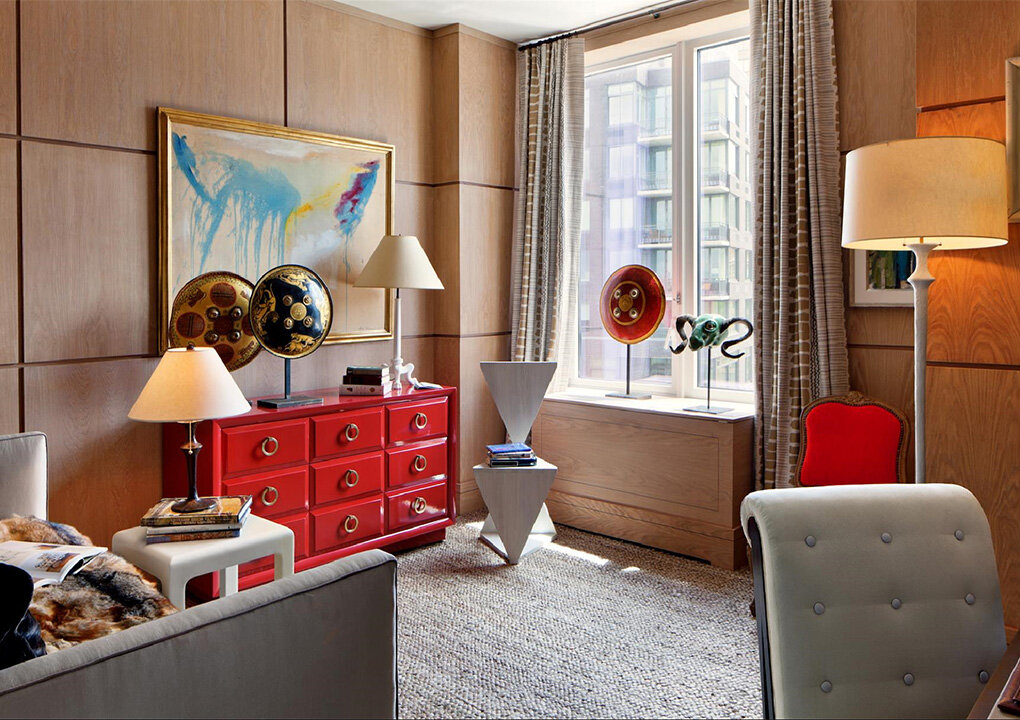The right lighting can make or break a space. No matter how meticulous you've been selecting color palettes or furnishing choices, you'll need to lean on lighting to add depth and enhance the ambiance of your space.
A good setup should accentuate architectural details that would otherwise fall flat. Of course, lighting also has a practical function, but you'll need to approach every room of your home individually before deciding on the best lighting solution.
Done right, interior lighting can seriously enhance your home decor. However, it needs to be at the forefront of your design plans, rather than brushed aside as an afterthought.
Why Choosing the Right Lighting is Important
Your home should be warm and inviting. Even if you've cherry-picked a palette of earthy hues and jewel tones, it's easy for a space to feel washed out without the aid of lighting. If you're a fan of contemporary interiors, you've probably opted for a stripped-back decor scheme and neutral colors.
It's great having a blank canvas, but a space like this can feel cold and sterile. Layered lighting is an effective setup in these situations.
Beyond brightening a room, lighting can also enhance an existing aesthetic. However, you'll need to choose fixtures in complementary colors and sympathetic styles that will blend seamlessly into their surroundings.
Putting the finishing touches to a more traditional living room? Oversized table lamps with classic drum shades are a fine choice. In a modern interior, steel frames will make a stylish addition. If you're looking to add more character to a minimalist space, consider swapping out black floor lamps for gold or copper ones. Tripod lamps can also work well with industrial-inspired decors.
Main Types of Indoor Lighting
General Lighting. When it comes to illuminating your interiors, your main focus should be general lighting. This light source should provide uniform levels of brightness throughout the entire room. It's effective at making a room feel larger but is also practical when you don't want to depend on table lamps and accent lighting. Ceiling fixtures are the obvious choice here. Keep it simple with recessed fixtures, or make a statement with a pendant light.
Accent Lighting. However, those general lighting fixtures will need a little help to showcase your interiors. This is where accent lighting comes into play. Pendant fixtures can be used again here, but opt for one with a long drop to spotlight specific areas. Some floor lamps can also be used to bring some supplemental light to your rooms.
Task Lighting. Finally, there's task lighting. Fixtures that fall into this category have a specific purpose. In living rooms and offices, this can be as simple as a desk lamp. In kitchens, you can introduce task lighting in the form of under-cabinet lighting to illuminate your work surfaces.
How to Enhance Your Interior With Lighting
You don't have to be an interior designer to bring your space to life with lighting. Downlighting is ideal for when you need to brighten up a larger area. However, this style of light fixture creates shadows, which may not be the style you're after.
Uplighting is another option and works particularly well in white or neutral spaces. The uplighting technique tends to produce softer, more diffused results than downlighting, making it ideal for bedrooms.
If you're working with a larger space, spotlighting is something to consider. In open-plan living areas, they can be used to define zones. If your room has high ceilings, think about suspending a pendant light above a dining table to create an inviting space for entertaining. Arc floor lamps can produce similar effects in reading nooks, without you needing to call in the services of an electrician or facility management company.
What About Natural Lighting?
Before you start splashing out on expensive lamps and lighting fixtures, consider what natural light can do for your interiors. Most rooms will have at least one window, with sunlight bringing a distinct quality to your space during the daytime. However, just because a space is filled with sunlight during the day, doesn't mean you can't skimp on secondary lighting.
Generally speaking, rooms with south-facing windows receive plenty of lighting during the daytime. If you rarely use a room with a south-facing aspect during the day, your focus should be on accent lighting.
By contrast, north-facing windows receive minimal sunlight, which also affects ambient temperatures. Lighting rooms with a north-facing aspect takes more effort.
You'll almost certainly need overhead lighting to compensate for those dimmer daytime conditions, as well as secondary sources to light up your home on the evenings.
Think Carefully About Color
The color scheme of your home can also affect interior lighting. It's tempting to coat walls with pure white emulsion or a fresh neutral shade. While these shades give the illusion of added space, they don't always play well with lighting. If you expose them to cool light, expect a cool quality. When exposed to warm light, those white walls are going to feel a lot more muted.
However, there's a lot you can do to take charge of your lighting. Selecting the right bulb temperature, using shades with diffusers, and incorporating reflective surfaces like mirrors are all surefire ways of keeping your lighting in check.
Never Underestimate Lighting
High-end furnishings and a premium color palette will go some way in making your home shine, but without a good lighting setup, your space is always going to feel like it's missing something. Lighting is that special ingredient that breathes life into layouts and creates an elusive atmosphere.
Lighting should be made one of your priorities during interior design decisions. Pairing practical lighting to function is easy enough, but things get a little trickier if you're designing a layout that needs to pull double duty. Once you've decided on the right type of lighting, you can then think about ornamental details that will add another layer to your preferred aesthetic.
About the Author
Brosnan Property Solutions, established in 1997 by brothers Ray and Desmond Brosnan, is a privately-owned company with office locations in Kerry, Cork, and Dublin. They offer comprehensive facility management and building services to both public and private sectors, including total facility management. They also provide a wide range of commercial solutions such as project management, technical services, and property maintenance, along with residential services including plumbing, electrical work, handyman services, landscaping, and gas boiler services.

